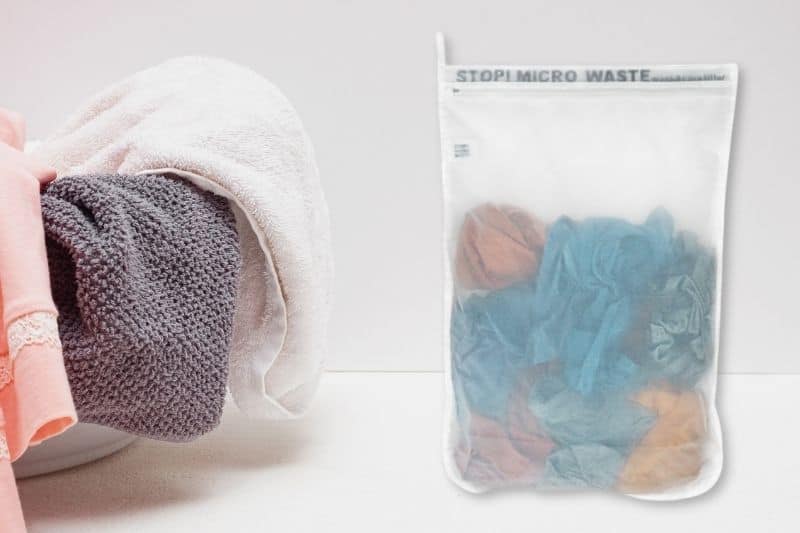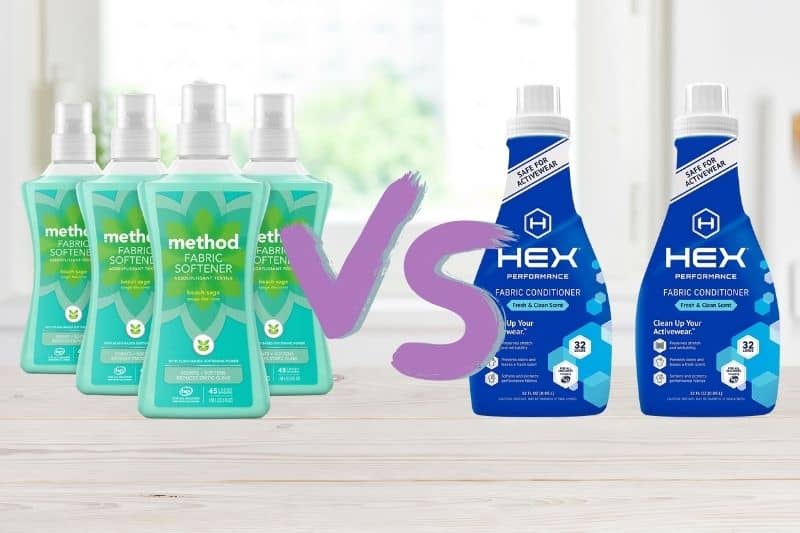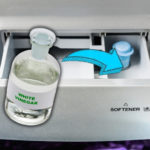When well-known brands like Lenor and Comfort seem to use the phrases “fabric softener” and “fabric conditioner” interchangeably, things can get confusing! Are fabric softener and fabric conditioners identical, or is their usage conditional?
Fabric softener and fabric conditioner are different names for the same product. In the US, the dominant term is “fabric softener”, while people in the UK prefer to use “fabric conditioner”. Both are names for a liquid that is designed to soften fabric in the laundry.
Now that I’ve clued you into the terminology, I’ll answer some typical questions about fabric conditioner – including what fabric conditioner does, and whether its usage is necessary.
What Is Fabric Conditioner?
The first thing to figure out about fabric conditioner is what it’s made of.
Fabric conditioner is a liquid that’s intended to soften fabric and reduce static cling. Liquid fabric conditioner contains various chemicals – most commonly lipids, silicone, and ammonium and chloride salts. Usually, fabric conditioners are perfumed to give laundry long-lasting scents.
Traditionally, cotton softeners were made with a mixture of soap and oil, but they’ve gotten more complicated since their humble beginnings; they have to deal with numerous synthetic fabrics now.
What Does Fabric Conditioner Do?
It says it in the name, but what is fabric conditioner actually doing to your clothes?
When your clothes are in the wash, a liquid fabric conditioner is meant to be added during the rinse cycle. Fabric conditioner coats your clothing with a scented lubricating mixture, making clothes slipperier to reduce friction.
Additionally, fabric conditioner separates fibres to make clothes feel fluffier.
Do You Need to Use Fabric Conditioner?
Fabric conditioner may be a part of your laundry cycle that you take for granted. In the 20th century, it was almost a necessity due to the harsh effect that dyes, washers, and dryers had on fabric. But now…
You don’t need to use fabric conditioner on your garments, especially if you use a tumble dryer or wash on a gentle cycle. Some garments, like athletic wear, require that you don’t use fabric conditioner to preserve the clothing’s unique properties.
Using fabric conditioner is a personal preference, and some people like their fragrance and softening effect. Air-drying your clothes may leave them stiffer, so fabric conditioner can help retain the fluffiness of towels and jumpers.
Can You Be Allergic to Fabric Conditioner?

Having clothes that make you itchy is an awful feeling. You want to make sure you’re comfortable in your clothes and your skin.
It’s possible to be allergic to certain ingredients in fabric conditioner. The perfumes and preservatives used in some brands of conditioner can cause allergic dermatitis and worsen existing skin conditions like acne and eczema.
If you’re allergic to similar products like laundry detergent, the odds are that the fabric conditioner is going to leave you scratching!
What Is the Best Fabric Conditioner to Use?
In The Wash has already ranked the top-performing fabric conditioners in the UK, alongside the UK’s best smelling fabric conditioners.
Comfort branded fabric conditioners are a firm favourite among Mumsnet users, especially Comfort Blue Skies and Comfort Waterlily & Lime.
Fairy Fabric Conditioner ranks high for those with sensitive skin, and supermarket fabric conditioners like Tesco’s Gold Topaz and Wilko’s Sunny Days are popular among budget shoppers.
Method Pink Freesia fabric conditioner is also praised for its lovely floral scent.
What Are Some Alternatives to Fabric Conditioner?
If you’re not keen on fabric conditioner but you still want your clothes to feel soft and static-free, there are a few alternatives.
Tumble-drying your clothes will plump their fibres, keeping your towels fluffy. Washing your clothes on a delicate cycle will minimise any damage done in the wash. Also, ensure you don’t overfill your washing machine with laundry detergent, otherwise, you’ll have crunchy t-shirts.
Laundry bags

If you’re looking for alternative products to fabric conditioner, you could put your synthetic laundry in Guppyfriend washing bags.
When you wash synthetic clothes, small plastic fibres will naturally be torn off and drained away. Guppyfriend washing bags are designed to protect the fibres, keeping your clothes in good condition, and reducing microplastic pollution from washing synthetic clothes.
Wool dryer balls
Reusable wool dryer balls are another eco-friendly fabric softener alternative. They keep clothes from clumping and being damaged in the dryer and quicken the overall drying time.
Dryer sheets
There are also dryer sheets, but they have many of the same properties as fabric conditioner – meaning that if you’re avoiding conditioner you’ll probably also want to avoid dryer sheets.
Dryer sheets are heat-activated and can be put in your tumble dryer for the same effect as a fabric conditioner.
White vinegar
You can use white vinegar in place of a fabric conditioner, but I don’t recommend this. As covered in my earlier post, vinegar can do some serious damage to your household appliances!
If you live in an area with hard water, soda crystals can soften water in the washing machine.
Conclusion
Fabric softener and fabric conditioner are the same things, but we tend to use “fabric conditioner” in the UK.
Popular fabric conditioner brands include Comfort, Fairy, and Method. Supermarket-own brands like Tesco and Wilko are a good bargain pick.
Fabric conditioner is used to soften your clothes and prevent static build-up, but it’s not necessary to use this product with most modern washers and dryers.
There are some eco-friendly alternatives to fabric conditioner available, like dryer balls and washing bags for synthetics.

A recent uni graduate who likes writing, gaming, and drawing. I’m figuring out housekeeping tips alongside you while trying to provide eco-friendly cleaning options. Let’s find out how to use a tumble dryer together!






